In Conversation: Matthew Revert and Michael J Seidlinger
Matthew Revert: Who friended who? I don’t even know anymore.
Michael J Seidlinger: How the hell did we start talking to each other? At one point we were both strangers, completely invisible to each other. Hmm, I think what happened, on my end, is that I friended you and didn’t reach out and talk for a long time. I tend to do that.
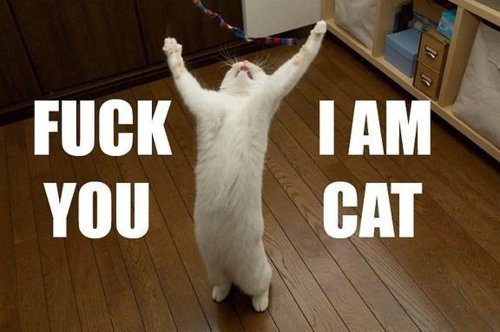
MR: I remember you were posting about your insomnia, and being a fellow insomniac, we discussed it a lot.
MS: This is true. I am a raging insomniac.
MR: And I suggested you listen to earth2 by Earth. And friendship was born.
MS: And from there, it quickly spiraled into design. I think it was being mutually interested in graphic design that forged it.
MR: Design was the key. I’m not even sure if you knew I was a writer at the time.
MS: I actually did. I knew you were a writer. Ironically, I do remember knowing of you as a writer before the design.
MR: Oh? That actually pleases me.
MS: I think it was the book with all the people on the front, the carbon copies. A Million Versions of Right?
MR: Yeah, that was my first book. About to go out of print actually.
MS: Yeah, I bought that and read it and it wasn’t until we started talking about insomnia via comment threads and Facebook chat that I put the pieces together.
MR: Shortly after meeting you, I started investigating CCM and saw that you were a writer and also a designer. That parallel pleased me because I had always been shoved into the writer camp or the designer camp (increasingly the latter).
MS: Since taking over CCM, I’m setting all my books originally published on CCM out of print; ethical issue.
MR: Yeah. That makes sense. I worried about that with my first books for LegumeMan.
MS: Ah, so CCM led the way? It’s interesting to meet people that knew of the press before they knew of me.
MR: Yeah. Pretty sure it did. And I purchased My Pet Serial Killer. And really enjoyed a lot of your CCM design work.
MS: That gets me to thinking…
MR: Yeah?
MS: How we’re both writers and designers. I do believe that you and I were writing the books at the same time, the books that we’re talking about.
MR: As in, when we first met, you were writing Laughter of Strangers and I was writing Basal Ganglia?
MS: I recall writing Laughter of Strangers around the time you were revising and “going under” and really getting into the thick of it with Basal Ganglia. We were already talking, but it wasn’t until that time that we started talking on a daily basis.
MR: Yeah. We were both working on our books. Did we know, at that time, they would both be released by Lazy Fascist in the same batch?
MS: That’s interesting. I don’t think so. I could be wrong but I do recall having many a late night talking craft.
MR: Yeah. We unloaded our various frustrations and triumphs on each other.
MS: Good days and bad: We discussed them all.

MR: Basal Ganglia was a very difficult book for me to write so there was a lot of ennui. How long did it take you to write Laughter of Strangers? You write much faster than me, I think.
MS: It took me about 3 or 4 weeks.
MR: Hahahaha. Basal took me 18 months and is half the length. You’re a machine.
MS: I think I write fast because I’m afraid of staying with a book for too long. As a result, I become consumed by the project. How many drafts did you have for Basal?
MR: Yeah, and that clearly works for you. I mean the end result says it all. I had upwards of ten false starts. I turn my book into a year-long lifestyle.
MS: So you “live” the novel—that’s awesome. Do you have any specific quotas/rituals?
MR: Getting right down to it, I started writing Basal Ganglia as a response to cognitive therapy I was undergoing. I wanted to understand that experience. That’s how it tends to be for me. I am responding to something that has happened. Something that has led to significant change within me.
MS: From the beginning, the book delved right into the cerebral.
MR: Yeah, I’m in that place. I tend to live the book for long periods. Gradually eking it out.
MS: So you sort of have a period of “making sense of it?”
MR: Yeah. And that period often maintains well into the process, but as a result of that, it only had two drafts. My first draft is very close to the final draft. But Basal Ganglia was a real puzzle to figure out and I wanted to understand as many pieces of that puzzle as possible before I started writing it.
MS: I’m personally interested in the part of the writing process that involves not the initial process, or drafting, but rather how an idea becomes something more organic, something real. It’s interesting to see how you turned the book into a puzzle given how you were looking to make sense of a puzzle. You crafted a puzzle to make sense of a personal puzzle.
MR: It seems to me that so much of the energy in Laughter of Strangers would come from the way you’re able to almost purge the book in a shorter space of time.
MS: I believe I’m beginning to see that, yeah. I have this compulsion to chase after the perceived momentum of a piece. Everything hinges on the first 2 days of writing—that two-day stretch sets the pace. Most of the time, I write approximately 3000-5000 words, have the general structure and feel of the book. I’ll know where it’s going; from there, it begins to consume me. I can’t stop thinking about it. It follows me throughout my days. As a result, I write faster. Maybe it really does show itself in the stuff I write.
MR: Before I started writing Basal Ganglia, I knew I wanted it to be set in the human brain, with the “basal ganglia” of the title becoming the only characters within that brain.
MS: Do you outline, or plan out anything conceptually?
MR: Not on paper, no. I usually start writing a random chapter. I think the first part of Basal I wrote was chapter 7. This sounds kind of wonky, but the only real planning I did outside of my head was to have a print out of the human brain’s anatomy on my writing desk. I circled a part of the brain and said, ‘okay… now write this’.
MS: Actually this makes a lot of sense. I think it’s interesting to see how your process of writing the pieces out of order really became your own personal means of laying out/solving a puzzle: the concept of the brain, of cognition.
MR: Yeah. I don’t think I really saw it at the time, but the process was my way of understanding the puzzle. And I accidentally wrote a line that I nearly deleted until it dawned on me that the line I had written unlocked the entire book. Being careful what I write so as not to give anything away
MS: The infamous single line that can completely change a book.
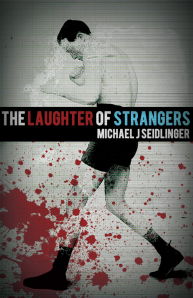 MR: Yup. Tell me about Laughter though: What made you choose a boxing novel?
MR: Yup. Tell me about Laughter though: What made you choose a boxing novel?
MS: Oh with Laughter of Strangers, it was completely different from how I usually approach a project. During AWP 2013, Cameron Pierce and I were talking during drinks at one of the many many after parties surrounding the conference. At some point, I started talking about boxing for some reason, how I have experience in the ring. Cameron planted the seed, telling me that I should write something, a novel based on my experience. Right after AWP, I started on the project. Of course, it wouldn’t have ended up as a pure tale of pugilism.
MR: Ah, that makes a lot of sense. Cameron is good at doing that.
MS: Yeah, Cameron planted that seed and the rest was pretty quick… I became consumed with the character that became “Sugar” Willem Floures. During the writing of the book, I’d end up writing a couple thousand words a day, only to feel unsatisfied by what I had written so I’d go back late at night and write more, more, more. I was almost instantly consumed. I’d end up on Facebook late at night, which was actually when we’d talk a lot.
MR: Yeah, which tended to be my late afternoon.
MS: Yeah, and I’d write a few lines only to run away momentarily, skimming my newsfeed and chatting.
MR: Okay. So you have this idea that you want to tackle. You plan it all out. How do you get yourself through it? You mentioned that you become consumed by the process.
MS: Yeah—it was quick. I had the concept; I planned it out over the first 2-3 days. I always need to know where the story is going, the basic 3 act structure (even if it doesn’t end up becoming 3 acts (I need the rising action, the conflict, the climax, the catharsis), and I usually have a document that I dub “bullet code” where I have the outline listed in grabbable quotes and various nuggets that read like tweets. It’s categorized based on how the structure flows. So, in Laughter of Strangers‘ case, I had each title of each chapter named and labeled. I had a general estimation of how long it would take for me to set up what needed to be set up in the scene (number of pages). Once I had this information, I started. It’s the only way I can write quickly: I need the skeleton before I can start.
MR: That makes a lot of sense. Does that mean you know exactly what’s going to happen, or do you often surprise yourself?
MS: I know what’s going to happen but surprises always occur. Like you said, one line can change everything. I leave enough room to let things go right (or wrong). I think I try to eliminate the problem areas. I don’t think I can tolerate a lot of living with a novel; I need to get it out. I need to live it quick. I don’t stay interested in things for long.
MR: Ah! That says a lot right there. It’s very economical. I envy it.
MS: I actually envy the slower more methodical pace. The way I write isn’t fulfilling in the long run. It’s over so quick, you know? I’ve always wanted to let the book live a little. But it’s always ended in failure. You know, totally off-topic but, I wanted to ask you how did you manage social media during the writing of Basal Ganglia. I know we were both online a lot during the writing of our own respective books. How did you tolerate it?
MR: Oh that’s a tough one. Sometimes I didn’t manage it. I allowed myself to avoid what I was finding difficult by spending time on Facebook. Or watching speedruns on NES games on YouTube.
MS: Quick! First game system that made you realize you were a gamer.
MR: Definitely the NES.
MS: Cool. For me it was the PlayStation actually. It was when I finally kept up with every single game announcement. I’d save up everything to buy games day one.
MR: I never really understood videogames before that. My brother, sister and I got the NES with Super Mario Bros 3 for Christmas and it didn’t take long for me to sense something important was happening.
MS: The Super Nintendo was when I really knew that videogames would end up part of my life though.
MR: I am a retro videogame whore. Oh, man… did I tell you my tragic Zelda story?
MS: No, now you need to tell me.
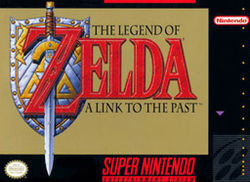
MR: Okay… so it was my birthday a couple of weeks ago and I gave my siblings a list of SNES games I didn’t think they’d go to the effort of trying to track down. Anyway, they did. It was amazing. My sister got me Zelda: A Link to the Past, which is a top 5 all-time game for me.
MS: Such an awesome game.
MR: Yeah, so happy. I took it to my brother’s afterward to make sure it worked okay. It worked fine, but the fucker was in German!
MS: You know any German?
MR: No. You can’t play a game like that if you don’t understand a single word on the screen.
MS: Hell no. SNES didn’t have Google Translate (not that any game system does).
MR: My sister has no idea she got me a German version. I hope she doesn’t read this because I never want her to know.
MS: Time to learn German. I’d learn German so that I could play A Link to the Past. Good enough reason as any. Start by listening to Rammstein.
MR: Yeah… at the moment all I know how to do is scream English words in a scary, borderline racist German accent. Rammstein taught me to cum in my boot.
MS: I know ich bin something. “I am ______.” How existential.
MR: I never knew Rammstein possessed so much depth.
MS: Man I think we could talk games nonstop.
MR: Yes, which makes it clear that social media is both a blessing and a curse. We wouldn’t have speedruns… but see, I had this very small cadre of people, yourself included, who really helped me emotionally through the writing process. So while social media may have been a detriment at times, it was also a lifeline.
MS: Yeah, it helps to leave the piece for a few minutes. Check Facebook, get lost, let the problem sit there while the mind resets. I know it helped to chat with you about stuff; often we’d end up chatting about videogames.
MR: Exactly. And while writing Basal Ganglia, I had these mini breakdowns. Sobbing, pathetic breakdowns. And I was able to talk through them with this very kind, very patient group of people I’m close to.
MS: It really was, for the most part, a lifeline, yeah.
MR: Let’s face it; we get from social media what we put into it. I’m pretty satisfied with the balance I had.
MS: Yeah man, couldn’t agree more.
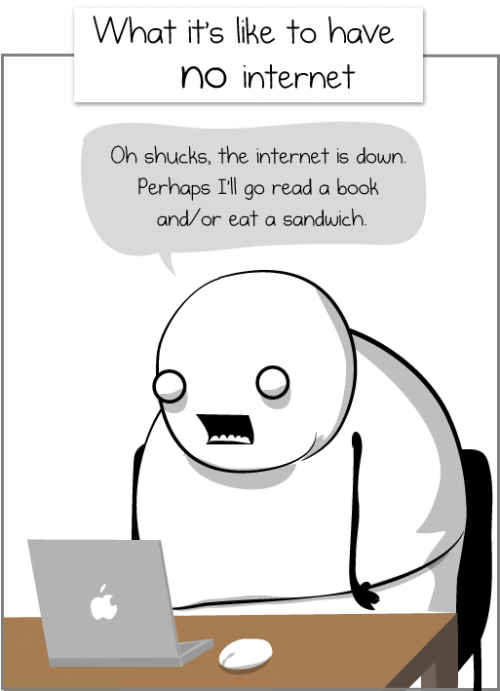
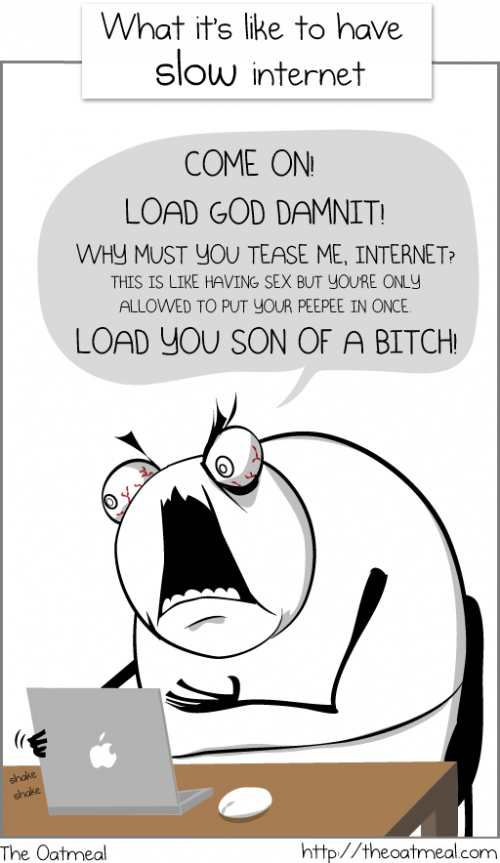
MR: Yeah. It makes sense given how often we were the other’s lifeline.
MS: Have you ever posted something online and immediately deleted it?
MR: Yes! Did today actually.
MS: Yeah, I feel like I do it more when I’m writing. Like I’ll post something to do with the book I’m writing and if it doesn’t go over well, or I’m too self conscious, I’ll take it down.
MR: There’s a lot to be said for the way we use textual communication as a way of very carefully sculpting our ideal persona. It’s pretty fucked up, the way it can subtract from honesty
MS: Yeah… I’m sure you’ve heard about the argument of our brains being rewired by social media. I don’t have a whole lot to say about it except that I do feel like my attention span has dwindled, and my penchant for compulsivity and impulsively going with things increasing. How about you?
MR: Definitely. And that’s hard to deny. As I delete or edit a status update (one I very carefully word in my head first), I can’t help but feel an essential aspect of myself is being killed. That I’m giving the most superficial aspects of myself.
MS: But without social media we wouldn’t have…
MR: Speedruns?
MS: I was going to say quick access to live metal videos but yeah speedruns. I can’t live without my retro videogame YouTube fixes.
MR: We need a healthy helping of both.
MS: Yeah—or otherwise it gets dark. Without something to reset and detach from the consuming process the project, we can go into dark places. For instance, a couple months back, I finally came to grips with why I write so quickly. I got to thinking that it might be because I’m too self-conscious, self-conscious of the fact that I’ll lose momentum. I end up condensing it all in a debilitating rush to fight or flee.
MR: What is it about being consumed that scares you, do you think?
MS: Hmm. Maybe it’s because the material just gestates in my head whether or not I’m writing, and it just stews there. I don’t know what exactly it is, at least not yet, but, usually the longer I am with something, weird stuff happens. Little habits form.
MR: That is definitely one of our key differences. My books depend on that consumption.
MS: I have noticed that; for all the similarity, we do write with very different methods.
MR: I have a story pertaining to “dark places” that speaks to my methodology. It has to do with my second book, The Tumours Made Me Interesting: I wrote it because I had a lot of symptoms indicative of bowel cancer and honestly thought I was dying. It turned out to be Crohns disease, but the symptoms are very similar. I wanted to write a book in this place where I was genuinely concerned about death. I wasn’t conscious of this at the time, but I was doing a lot of things to make myself as sick as possible so I could stay in this place.
MS: The revelatory/exploratory mode in effect.
MR: Yeah, as fucked up as it was, I didn’t feel I could write the book unless I felt this illness taking me over. Very much method writing, I suppose.
MS: Really living it.
MR: But that’s the sort of place I have to be at when I’m writing, which is pretty ridiculous really. I understand why you need to get it out, because I’ve experienced some horrible health concerns with the way I write.
MS: You seek to be consumed. I seek to flee consumption.
MR: I almost always think of writing as that. A form of suffering. Which is tied into the whole hackneyed tortured artist thing, which is really embarrassing to admit some similarities to. I don’t necessarily want writing to be like that. It just is, you know?
MS: It does make sense though; we see it and feel it more often than we’d like to admit it. I know that writing has afforded me a sort of general preoccupation that’ll never leave. My mind is grinding away at thoughts and worries that might not be there if I didn’t open up wounds all the time. I am always thinking about what will go wrong, what can go wrong.

MR: When I was writing How to Avoid Sex, it was very much a sideline thing for me because Basal Ganglia was already forming in my mind. I feel How to Avoid Sex is a disingenuous book because I was flippant about it. It didn’t consume. I was just saying goodbye to this absurdist humor thing I was moving away from.
MS: Not sure we can help it.
MR: Exactly. And that’s what we’ll keep doing.
MS: Oh, so do you feel differently about a book if it doesn’t consume?
MR: Yeah. I’m proud of How to Avoid Sex for what it is, but I don’t feel it needed to exist. Whether they were ultimately successful or not, I feel The Tumours Made Me Interesting and Basal Ganglia should exist.
MS: I usually feel bad about something that didn’t satisfy me in the end. I wasn’t satisfied with My Pet Serial Killer. Not satisfied with a few books that I’ve written.
MR: Yeah? Why, do you think?
MS: I haven’t been satisfied with most but they exist; and I feel like they’re done. I just don’t feel anything for them. It’s weird. Yeah the whole existence thing occupies me too. Do they need to exist? If they were alive, would they be expendable?
MR: That has become my number one question.
MS: Yeah… Nowadays it isn’t enough to just write; I need to consider an idea that is worth writing about. I don’t know, maybe it’s because we are finally understanding what it takes to write something. The dark spots, the pitfalls, what it takes out of us… I know that I can’t just pick something up and write it the way I used to; I need to consider it like a new person I’m about to date/meet. How about you man?
MR: Well, yeah… there’s a lot of people who will say the only thing that can judge whether a book should exist is whether others want to read it. And I know it’s selfish, but I can’t get on board with that. I love if people want to read what I do, but I need to want to read it too.
MS: Yeah that’s ultimately what keeps something alive. That’s what validates it for me—finding out that what was written is actually something people enjoy.
MR: I always want a book to change me slightly. To force me to reassess something I had always believed.
MS: I do feel like I ask of something writing cannot give me. Maybe I’m expecting something grand, some catharsis. Like you said: something to be changed.
MR: For me, that’s more important than being entertained, which is commercial kryptonite.
MS: I definitely share the sentiment: I almost see it as giving birth to something. I can’t just let it out. I need it to be something more.
MR: Yes. It is.
MS: I never really think about the end product. I see it as this thing, full of color, full of atmosphere, that needs to be full before it can be written.
MR: But then the question naturally follows… sure, I may want all of these things from my own book, but why the hell should a publisher lay down money to release it?
MS: That’s ultimately the great leveler, yeah. We can write it but will it be understood, read by anyone else? I feel like we’re both playing mindgames with our own psyches…
MR: I try to find a balance. I’m nobody. I can’t expect people to read whatever has my name on it. People need to have a reason that exists entirely separate from the one who created it
MS: Yes! I agree: It’s not about the byline.
MR: That’s writing to a large extent. And not just the writing itself, but the frustration also carries out into the way the book is received (if at all).
MS: The moment a book is a book, or anything beyond just something completed/written, it is its own thing.
MR: Yeah. And it has to be. You know, I’d be interested in knowing how you think your writing process has changed over time. What has changed from the way you approach writing what you write now as opposed to your first book?
MS: Good question. If it’s anything like what I sought it to be, it’s good. I felt satisfied. Addicted to that satisfaction. Now, I don’t even know what to feel. The release, catharsis is gone for me. If anything I mourn the fact that I’ve finished… and maybe I absolutely need to start another just to feel normal. Like I’m in withdrawal.
MR: We’re already talking about something fleeting. It sounds to me as though remaining static for too long messes you up.
MS: Yeah might be that… it’s as strange for me as it is for anyone else. It sounds insane I’m sure.
MR: You view whatever book you’ve finished as merely a part of much larger project. One that can never really be finished.
MS: Yeah… That’s a good way to look at it. My naturally negative/apathetic self often just treats it as addiction. Me at an AA meeting: “Hello my name is Michael and I’m addicted to writing.”
MR: When I’m right near the end of a book, I become frantic. I can’t sleep. I’m scared to keep writing. Terrified of the final word. Wondering what will happen after that final word. During Basal Ganglia, I had been writing until about 2am and decided I needed to sleep. I was lying in bed just knowing that book was sitting there. Waiting for me to give it release. I had to get back up and keep writing until it was done. I feel immediate loss. Then a quick rush of success. Then the loss comes back.
MS: The loss… How long did that rush last?
MR: The rush is a blink. I’m kind of dazed wondering how this thing that occupied over a year of my life could somehow be finished. I don’t know how to separate the conclusion of this thing from the way I have come to identify myself by its existence.
MS: I can definitely relate to that. The rush, for me, has gone. Now I only feel the “loss.” What I wonder is after doing this, feeling the rush for a few projects, do we lose it? Is this natural?

MR: It seems to me that it must be natural. At least, it’s natural for me.
MS: No wonder people that succumb to the compulsion to create end up fucked up. No wonder we’re so weird.
MR: The absence of that rush in anything one does over a prolonged period of time is natural. It’s not to say it no longer possesses a great deal of personal importance.
MS: Yeah, and then it’s not hard to imagine why people lose track. People perhaps lose interest; or better yet, people become even more obsessed because we’re all trying to reclaim that feeling we once had.
MR: You could even go as far as to say without that rush, you are given a more intimate understanding of what you’re doing.
MS: Yeah, I agree–not a loss of importance. It just seems like we don’t feel the importance as much.
MR: I think that’s accurate. How can we truly assess something we’ve only known through a microscope? This is when we must rely on others to give us a bird’s eye view of the maze we’ve been trapped in. I look at it like this: One can become obsessed with their skin and examine every pore very closely. In this microscopic obsession, how can we not see the myriad blemishes? I think it’s the same with a book. All we can see is the process. We were there as each word was created. It takes someone else to stand back and say, “You know what? You have fucking great skin.”
MS: It is only when we step back do we see the skin for what it is.
MR: Yeah, and that can be terrifying. And it can be underwhelming.
MS: It’s terrifying because it can be underwhelming.
MR: Yes.
MS: I’d worry that it’s nothing, that it will not be anything. Will give no such response much less the kind of response I’d hoped for. It just is, and then there it is again: The loss.
MR: Yes. When the process ends, this thing is left in its wake. This thing just is.
MS: Yeah like this conversation. It is a conversation and you and I both couldn’t know whether or not it’s anything but a conversation.
MR: Until we step back.
MS: Yup, and we might as well.
MR: Yeah.
***
 Michael J Seidlinger has been in the ring long enough to experience the sting of a perfectly timed power punch. He’d like to think that every novel represents a fight its author has both fought and won. Some of his fights include The Laughter of Strangers, My Pet Serial Killer and The Sky Conducting. He serves as the Reviews Editor for Electric Literature as well as Publisher-in-Chief of Civil Coping Mechanisms, an indie press specializing in innovative fiction and poetry.
Michael J Seidlinger has been in the ring long enough to experience the sting of a perfectly timed power punch. He’d like to think that every novel represents a fight its author has both fought and won. Some of his fights include The Laughter of Strangers, My Pet Serial Killer and The Sky Conducting. He serves as the Reviews Editor for Electric Literature as well as Publisher-in-Chief of Civil Coping Mechanisms, an indie press specializing in innovative fiction and poetry.
 Matthew Revert is the author of Basal Ganglia (Lazy Fascist Press), How to Avoid Sex (Copeland Valley/Dark Coast Press), The Tumours Made Me Interesting (LegumeMan Books) and A Million Versions of Right (LegumeMan Books). Revert has had work published in Le Zaporogue, The Best Bizarro Fiction of the Decade, In Heaven Everything Is Fine: Fiction Inspired by David Lynch, The New Flesh, The Bizarro Starter Kit (Purple) and Gone Lawn Journal among others. In addition to his writing, Revert has gained recognition for his design work for various highly-regarded presses and record labels.
Matthew Revert is the author of Basal Ganglia (Lazy Fascist Press), How to Avoid Sex (Copeland Valley/Dark Coast Press), The Tumours Made Me Interesting (LegumeMan Books) and A Million Versions of Right (LegumeMan Books). Revert has had work published in Le Zaporogue, The Best Bizarro Fiction of the Decade, In Heaven Everything Is Fine: Fiction Inspired by David Lynch, The New Flesh, The Bizarro Starter Kit (Purple) and Gone Lawn Journal among others. In addition to his writing, Revert has gained recognition for his design work for various highly-regarded presses and record labels.Tags: Matthew Revert, Michael J. Seidlinger

i enjoyed reading this conversation
Thanks Timmy!
After reading this conversation, can you tell me whether or not I’m insane. I think I’m in denial.
[…] Matthew Revert and I ended up talking for a couple hours about writing process and pitfalls for HTML Giant. […]
I’m not sure I am qualified to make such a diagnosis but sanity has always seemed relative at best, like two people trying to decide whether a sweater is purple or blue in the light of a department store. :)